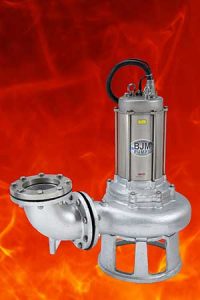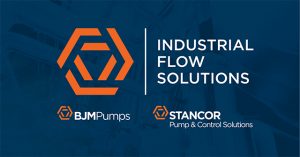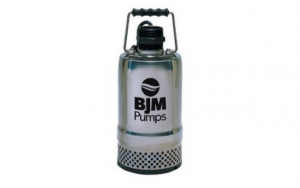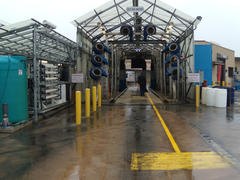An important portion of the total global energy requirement is corn based Ethanol. Additionally, Ethanol has been a major focus in this country over the past decade, as the United States strives for energy independence. The U.S has become the largest producer of Ethanol in the world, with a 56.8% share totaling over 13.7 billion gallons (52 billion liters) produced in 2013. That represents a doubling of production since 2007. This level of production increase would be hard to achieve without improvements in equipment, systems, and processes.
One group at the forefront of improving the Ethanol process is a Midwest based research center. Located outside of Saint Louis, Missouri, this research center focuses on validation and commercial testing of products, technologies, and new concepts. The center is fully equipped to meet all research or technology validation needs, providing laboratory, fermentation, and pilot plant production process services in a totally integrated setting.
Pilot Plant
Costs associated with the design and development of products for the renewable fuel  market represents a tremendous investment. Knowing precisely how they will perform in a real plant, before that investment, can make a significant difference in a company’s success or failure.
market represents a tremendous investment. Knowing precisely how they will perform in a real plant, before that investment, can make a significant difference in a company’s success or failure.
The 24,000 square-foot pilot plant, equivalent to a 1/250th scale ethanol production facility, operates at a 100-400 bushel per day capacity and offers continuous or batch run operation.
The pilot plant Ethanol process begins with the entire corn kernel ground into “meal”. The meal is then slurried with water to form a “mash.” Enzymes are added to the mash to convert the starch to dextrose, a simple sugar. Ammonia is added for pH control and as a nutrient to the yeast. The mash is processed in a high-temperature cooker to reduce bacteria levels ahead of fermentation. The mash is cooled and transferred to fermenters where yeast is added and the conversion of sugar to ethanol and carbon dioxide (CO2) begins. The fermentation process generally takes about 40 to 50 hours. During this part of the process, the mash is agitated and kept cool to facilitate the activity of the yeast. After fermentation, the resulting “beer” is transferred to distillation columns where the ethanol is separated from the remaining “stillage.” The ethanol is concentrated to 190 proof using conventional distillation and then is dehydrated to approximately 200 proof. The ethanol is then blended with about 5% denaturant (such as natural gasoline) to render it undrinkable and thus not subject to beverage alcohol tax. It is then ready for shipment to gasoline terminals or retailers.
The pilot plant is staffed with an experienced team of engineers and lead operators. The Ethanol Plant Operating Coordinator is a veteran of the industry. Keeping the pilot plant operating at optimum efficiency is his job. Finding the right equipment to make that happen is paramount.
One of the maintenance requirements within the fermentation process is to periodically flush the tank with a caustic hot water (160-180 degrees F) cleaning solution. The blend of corn fines and corrosive water are then flushed into a sump where the wastewater is held prior to treatment. The previously used cast iron pumps responsible for clearing the sump had experienced excessive wear and short service life.
The Operating Coordinator consulted with BRI Inc., a major mid-west industrial distributor with extensive experience in Ethanol production.
Dave Auinbauh, a BRI Sales Engineer, had a solution to the problematic sump application. Auinbauh recommended utilizing high temperature, stainless steel submersible pumps.
The pumps he selected are manufactured by BJM Pumps. The 316 Stainless Steel  Pumps are designed to not only handle high temperature corrosives but provide the added advantage of solids handling for the bottom-settling corn fines. Non-clog, single vane impellers deliver high volume and lift performance that is required for the sump service. All of the BJM wear and “wetted” parts, such as the impellers and wear-plates, are made of Cast 316 stainless material. The elastomers such as O-rings, lip seals and gaskets are made of chemically resistant, high heat resistant FKM.
Pumps are designed to not only handle high temperature corrosives but provide the added advantage of solids handling for the bottom-settling corn fines. Non-clog, single vane impellers deliver high volume and lift performance that is required for the sump service. All of the BJM wear and “wetted” parts, such as the impellers and wear-plates, are made of Cast 316 stainless material. The elastomers such as O-rings, lip seals and gaskets are made of chemically resistant, high heat resistant FKM.
An additional life cycle enhancing features include:
- Three Seal Motor Protection – The submersible motor is protected by double mechanical seals. Lower seal made of silicon carbide/silicon carbide and upper seal is made of carbon/ceramic. An additional lip seal is installed above the impeller, to help prevent abrasives such as corn fines, from entering into the seal chamber. Additional winding protection, (NEMA) Class R motor insulation, and a thermal cut-out switch that will allow the stator to reach a winding temperature of up to 300 degrees F (150 C) are standard.
With over two years of operation, the BJM stainless steel submersible pumps have worked out exceptionally well, with no maintenance issues.
Keeping the pilot plant running efficiently requires consistent and continuous downtime reduction practices. Upgrading equipment to improve MTBF (Mean Time Between Failure) is imperative to insure the best testing results for clients and lowest operational costs for the research center.
About the Author
Mike Bjorkman is vice president of BJM Corp. and has more than 30 years of experience in the pump industry. He serves as director of marketing and IT for BJM Pumps, LLC, and All Test Pro, LLC. Both companies are subsidiaries of BJM Corp.
About BJM Pumps
BJM Pumps, established in 1983, supplies electrical submersible pumps to industrial and municipal markets throughout the United States, Canada and South America. BJM Corp. is headquartered in Old Saybrook, Conn. For more information, visit www.bjmpumps.com.
About BRI
BRI Inc., is a major distributor of premier pumping equipment with branch offices throughout Illinois, Missouri, and Iowa. BRI partners exclusively with the best-in-class manufacturers of rotating equipment to assure quality and operational excellence in manufacturing.





Comments